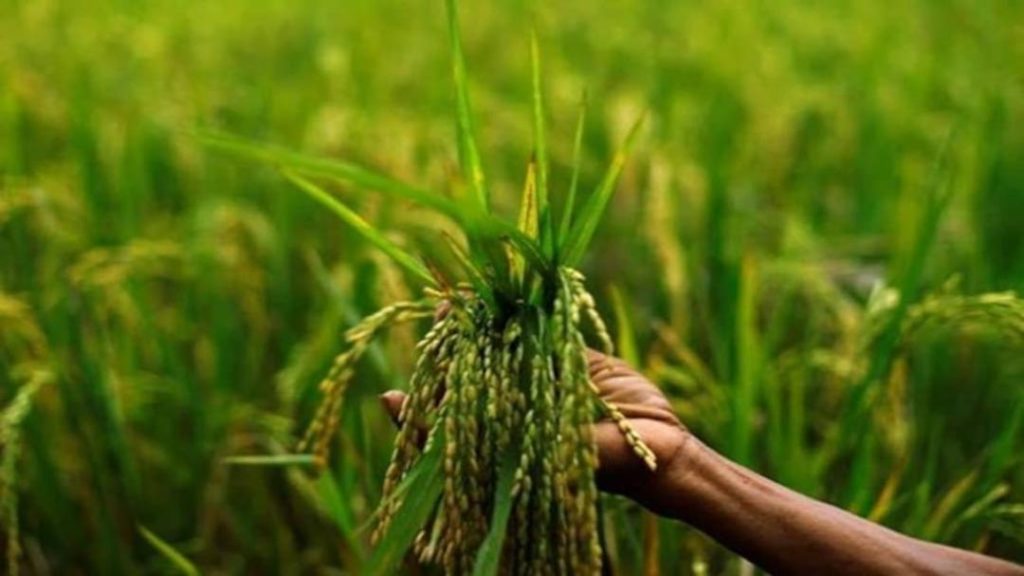
Title: India Cutting Chenab’s Supply Will Increase Water Shortage & Impact Crops, Accepts Pakistan
The Indus River System Authority (IRSA) of Pakistan has acknowledged that India’s decision to cut the flow of the Chenab river would lead to increased water shortages across the country. This announcement comes after India suspended the Indus Waters Treaty (IWT), which was signed in 1960 to regulate the sharing of the Indus River and its tributaries between the two nations.
According to IRSA, the reduction in Chenab’s supply will not only exacerbate the existing water crisis but also have a significant impact on the country’s kharif crops. The authority has estimated that the kharif crops, which are already facing a 21% shortage for the remaining early kharif season, will be severely affected by the reduced water supply. Additionally, water shortages in the late kharif season are expected to rise by 7%, further jeopardizing the country’s agricultural sector.
The Indus Waters Treaty was signed by India and Pakistan in 1960, with the aim of resolving the long-standing dispute over the sharing of the Indus River and its tributaries. The treaty allowed India to construct dams and canals on the western rivers, including the Indus, Chenab, and Ravi, while Pakistan was given the right to use the water of these rivers for irrigation and other purposes.
However, in recent years, tensions have been simmering between the two nations over the implementation of the treaty. India has been constructing dams and canals on the western rivers, which Pakistan has alleged is in violation of the treaty. Pakistan has also accused India of diverting water from the rivers, which is further exacerbating the country’s water crisis.
The suspension of the Indus Waters Treaty by India has sparked concerns about the potential impact on Pakistan’s water supply and agricultural sector. Pakistan relies heavily on the Indus River and its tributaries for irrigation and drinking water, and any reduction in the water supply would have severe consequences for the country’s economy and food security.
The IRSA has warned that the reduction in Chenab’s supply would have far-reaching consequences for Pakistan’s agricultural sector. The authority has estimated that the kharif crops, which are the main crop of the season, would be severely affected by the reduced water supply. The crops, which are already facing a 21% shortage, would be further jeopardized by the reduced water supply, leading to a significant impact on the country’s food security and economy.
Furthermore, the IRSA has also warned that the water shortages in the late kharif season would rise by 7%, further exacerbating the existing water crisis. This would have severe consequences for the country’s agricultural sector, which relies heavily on the Indus River and its tributaries for irrigation and drinking water.
The suspension of the Indus Waters Treaty by India has also sparked concerns about the potential impact on Pakistan’s water supply and agricultural sector. The treaty was signed in 1960 with the aim of resolving the long-standing dispute over the sharing of the Indus River and its tributaries. The treaty allowed India to construct dams and canals on the western rivers, including the Indus, Chenab, and Ravi, while Pakistan was given the right to use the water of these rivers for irrigation and other purposes.
However, in recent years, tensions have been simmering between the two nations over the implementation of the treaty. India has been constructing dams and canals on the western rivers, which Pakistan has alleged is in violation of the treaty. Pakistan has also accused India of diverting water from the rivers, which is further exacerbating the country’s water crisis.
In conclusion, the suspension of the Indus Waters Treaty by India and the reduction in Chenab’s supply would have severe consequences for Pakistan’s water supply and agricultural sector. The IRSA has estimated that the kharif crops would be severely affected by the reduced water supply, leading to a significant impact on the country’s food security and economy. The water shortages in the late kharif season would rise by 7%, further exacerbating the existing water crisis.
The suspension of the treaty and the reduction in Chenab’s supply would have far-reaching consequences for Pakistan’s agricultural sector, which relies heavily on the Indus River and its tributaries for irrigation and drinking water. The country’s water crisis is already severe, and any reduction in the water supply would have severe consequences for the country’s economy and food security.
News Source:
https://x.com/TimesNow/status/1919429995526520980






